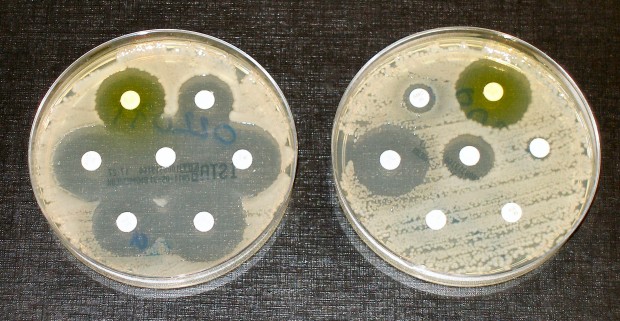By Victoria Quiroz
Thirty thousand years after it slipped away under the Siberian permafrost, a team of French evolutionary biologists have resurrected a giant virus.
The virus, Pithovirus sibericum, is the largest ever found at a length of 1.5 micrometres (or 1.5 millionths of a metre) and can be seen under a regular optical microscope, as opposed to a powerful electron microscope.
It was named by the husband-and-wife team Jean-Michel Claverie and Chantal Abergel, who headed up a team at Aix-Marseille university. The virus’s name was inspired by the Greek word for a large container used to store wine and food, “pithos.” Claverie said as French people they had to include wine in the story.
Pithovirus sibericum has been deemed still infectious, but harmless to humans or animals and only infects the Acanthamoeba amoeba.
However with its resurrection many are worried about other ancient and potentially harmful viruses and bacteria making a resurgence.
Claverie and Abergel wrote in their report that rising temperatures and arctic drilling and mining could possibly cause other infectious, ancient diseases to thaw, threatening humans.
Allan Morris, a health professional who has worked as a nurse for over 20 years, has worked in both hospitals and nursing homes where drug-resistant illnesses can manifest and harm already sick patients. Morris described the steps taken once a drug-resistant bug is detected.
“We keep track of them and put them into a separate room,” said Morris. “The hospitals have things in place to monitor them.”
The French discovery comes on the heels of a recent interview with science journalist Maryn McKenna in which she spoke about the possibility of living in a post-antibiotic age.
In the arms race between bacterial evolution and medicine, bacteria is pulling ahead due to reluctance by drug companies, CBC News reported.
Previously, when bacteria would evolve past the current antibiotics, medicine would create newer and stronger drugs. However as bacteria continues to grow stronger, drug companies are reluctant to create medicine to counteract them due to their tendency to be unprofitable.
According to McKenna’s Mar. 2 CBC radio interview, doctors are already finding themselves without anything to prescribe their patients. McKenna also mapped out how dependent humans are on antibiotics.
“We have lots of things in medicine now that rely on immune-suppressant drugs – cancer chemotherapy, organ transplants,” said McKenna. “Anyone who is in a state of immune suppression is much more vulnerable to infections, and we use antibiotics to keep those at bay. If antibiotics go, then things like cancer treatment become much more difficult.”

